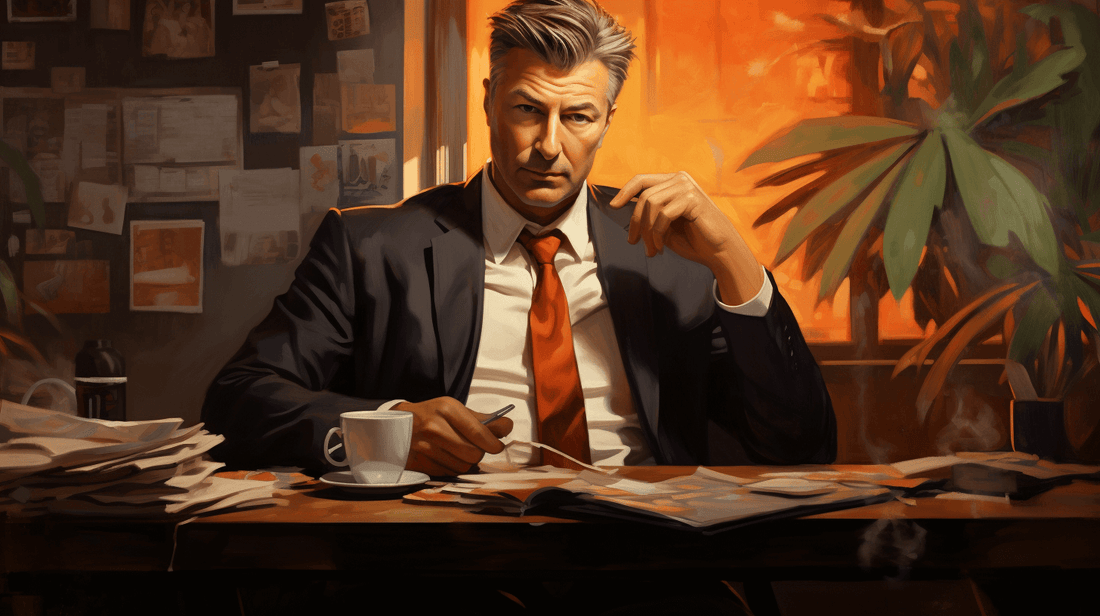As a coffee lover, I was intrigued when a friend first told me to “remember that coffee is for closers.” I soon realized he was referencing the iconic line from the 1992 film Glengarry Glen Ross. This memorable quote has had a profound influence on sales culture and coffee’s symbolic role in high-pressure corporate environments. In this article, we’ll explore the origins of “coffee is for closers,” its impact on real-world sales tactics, the motivational psychology behind it, and coffee’s enduring reputation as the fuel that drives modern closers. Grab your morning mug and let’s dive in!
Origins of the Phrase
“Coffee is for Closers” first entered popular culture from Glengarry Glen Ross, a dramatic film about the brutal competition at a real estate office. In one famous scene, Alec Baldwin delivers a motivational speech emphasizing the rewards (like coffee) that only successful sales “closers” deserve.
The Film’s High-Pressure Sales Environment: This fictional office epitomized the high stakes, low morale, and ruthless tactics seen in some real sales crews at the time. Baldwin’s character reinforces the strict hierarchy central to these environments: closers reap the plentiful rewards while underperformers are shown no mercy and face job loss. His intense speech tapped into very real pressures that sales reps faced daily.
Coffee as a Symbolic Reward: Within this high-stress context, coffee took on symbolic importance in the film, reserved only for top performers who closed sales. The script cleverly used coffee breaks to represent the broader privileges like bonuses and affirmations awarded to closers in real life, while underscoring the intense focus on results above all else.
Impact on Sales and Corporate Culture
This concept of restricting basic comforts like coffee breaks to only the closers illustrated the immense pressures permeating sales departments. The film resonated with audiences. Soon “coffee is for closers” began appearing in sales training programs and office motivational posters everywhere, codifying this performance-driven mentality.
Embodying a Relentless Ethos: The punchy quote distilled the relentless, performance-driven win-at-all-costs mentality that characterized commission-based sales teams. It promoted an environment where closers receive lavish rewards and affirmation from management while struggling colleagues face extreme pressure to produce or lose their jobs.
Shaping Modern Sales Strategies: In the decades since the film debuted, this ethos has directly shaped many hard-driving sales tactics focused purely on results. While these methods can indeed deliver sales outcomes in the short term, many also criticize them as promoting ruthless, dishonest, or unethical behavior just to beat the competition.
Psychological Implications
What does this ruthless focus on performance do to sales reps themselves on a deeper level? The mental toll of working under extreme pressure and job insecurity can be intense. However, some sales pros do thrive in this high-stakes environment, at least in the short term.
Motivational Impact: The “coffee is for closers” ideal can provide powerful extrinsic motivation, with reps constantly striving to reach the elite closer status and the accompanying bonuses and job security winning teams provide. This drive can boost tenacity, grit, and exceptional work ethic in some.
Psychological Toll: Meanwhile, the unrelenting pressure takes an exhausting toll on even top performers over the long term. The strict hierarchy outlined in Glengarry Glen Ross creates isolation and erodes camaraderie between sales reps, even within the same organization. Leaders must strike a delicate balance between motivation and realistic expectations to avoid burnout and toxicity.
Contemporary Relevance and Criticisms
While this intense performance-at-all-costs attitude still permeates parts of sales and business cultures today, contemporary leaders have justifiably moved away from its harshest aspects.
Problematic Elements: Many progressive leaders now recognize the systemic problems an overly cutthroat environment breeds, including the normalization of unethical practices and an overall toxic company culture that hurts output and retention. Workers themselves are increasingly rejecting extreme work conditions that sacrifice well-being.
Shift Towards Balance: Today’s most successful, forward-looking sales leaders focus more on developing their people through extensive training, community-building, emphasizing customer rapport over quick closes, and sustainable career trajectories over short-term gains. This balance counters the exhausted closer stereotype.
Coffee’s Enduring Role as Closer’s Fuel
Despite changing attitudes, coffee remains ingrained as the symbolic career-boosting fuel of closers in popular culture. The beverage’s reputation for providing quick energy, comfort in stressful environments, and sweet rewards for top performers endures decades later.
Coffee Culture in Sales: Beyond the strong mental association between coffee and success, coffee continues to play tangible roles in sales world rituals. Sales teams bond over coffee breaks. Key meetings commonly happen over lattes. Coffee remains the lifeblood that fuels the hectic sales lifestyle.
Reward and Status Symbol: And as in the pivotal film scene, coffee often represents a closer’s bonus or luxury even now. Personally, when I closed a big client account recently, my broker insisted we visit a swanky café to grab premium espressos to celebrate, cementing that symbolic link.
Recap
The intense scene from Glengarry Glen Ross succeeded in condensing the immense pressures on sales professionals into one biting catchphrase for the ages. This iconic line fundamentally shaped ensuing decades of sales tactics and workplace environments, for better or worse. As leadership styles evolve with workers demanding environments focused on sustainability over short-term gains, today’s teams balance drive and ethics more appropriately than the bleak film portrayed decades ago. But coffee remains the consummate closer’s reward, a celebratory status symbol for those who meet intense demands that fuel the next big challenge. The next time you sip your morning mug, take a moment to appreciate the liquid fuel still powering modern business.


